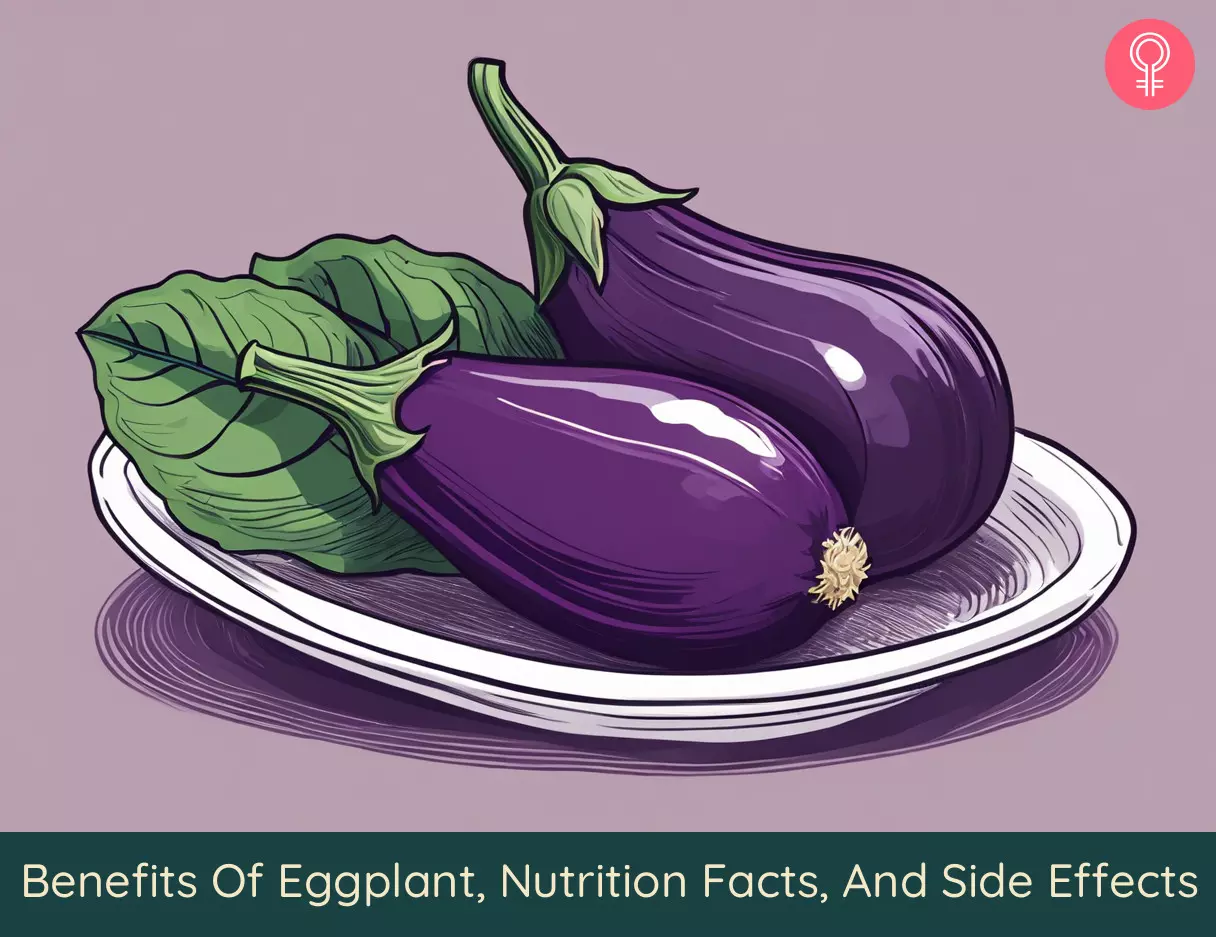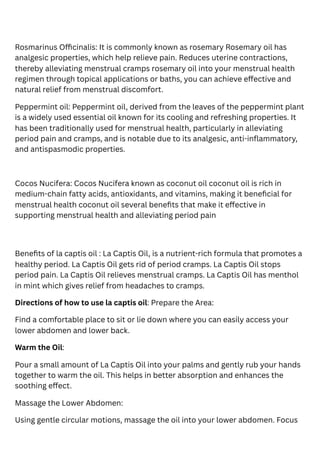Nutrient Spotlight: Unpacking the Health Advantages of Eggplant – A Journey from Mystery to Mainstay
In the vast tapestry of global cuisine, few vegetables command the same enigmatic presence as the eggplant. With its glossy, often deep-purple skin, elegant contours, and a flesh that transforms from firm to creamy under the kiss of heat, it’s a culinary chameleon. Yet, for centuries, the eggplant, or aubergine as it is known in many parts of the world, carried an air of suspicion, even dread. Its membership in the nightshade family, alongside tomatoes, potatoes, and peppers, once led to fears of madness and disease. This narrative, however, is a testament to the power of scientific inquiry and culinary exploration, transforming a once-feared fruit (botanically speaking, it is a berry) into a celebrated staple, revered not only for its versatility and flavor but, more profoundly, for its remarkable array of health advantages.
This article embarks on a journey to peel back the layers of this fascinating vegetable, moving beyond its culinary allure to dive deep into its nutritional composition and the profound impact it can have on human health. For the knowledgeable audience, we aim to tell a story – a narrative of discovery, molecular marvels, and the quiet, persistent work of nature’s pharmacy, encapsulated within the humble eggplant.
The Odyssey of the Noble Nightshade: From Ancient Roots to Global Plate
Our story begins not in the Mediterranean kitchens where eggplant is now synonymous with iconic dishes, but in the sun-drenched plains of India and Southeast Asia. Here, the wild ancestors of today’s cultivated eggplant first emerged, small, often spiny plants bearing fruits that ranged in color from white to green to pale purple. Early Sanskrit texts mention the brinjal (an ancient name for eggplant), testifying to its presence in Indian agriculture and medicine over 4,000 years ago. From these origins, its journey across continents was slow, punctuated by cultural exchanges and the relentless curiosity of traders and explorers.
The Arab world embraced the eggplant with open arms, introducing it to North Africa and subsequently to Spain during the Moorish conquests of the 8th century. It then found its way into Italy and other parts of Europe, often through Sicily, becoming a foundational ingredient in Mediterranean cuisine. Yet, this introduction was not without its hurdles. European farmers, wary of its botanical cousins (like deadly nightshade) and the unfamiliar appearance of its fruit, initially grew it for ornamental purposes rather than consumption. It was labeled the "mad apple" or "mala insana," believed to induce fever, epilepsy, and melancholy. It took centuries for these misconceptions to dissipate, largely thanks to the culinary innovations of cultures that had long understood its edibility and nutritional value.
Today, the eggplant is a global citizen, boasting an astonishing diversity of forms – from the classic large, pear-shaped American globe eggplant to the slender, delicate Japanese and Chinese varieties, the tiny, round Thai eggplants, and the white, striped, or mottled heirloom types. Each variety carries a slightly different texture and flavor profile, yet all share a common nutritional core that makes them invaluable additions to a healthy diet.
The Nutritional Profile: A Deep Dive into Eggplant’s Molecular Marvels
At first glance, eggplant might seem deceptively simple – mostly water, low in calories. But beneath its vibrant skin and spongy flesh lies a complex matrix of macronutrients, micronutrients, and, most importantly, an arsenal of potent bioactive compounds that orchestrate its health-promoting effects.
1. Macronutrients: The Foundation
- Low Calorie & High Water Content: Eggplant is approximately 92% water, making it a remarkably low-calorie food (around 20-35 calories per 100 grams, depending on preparation). This characteristic makes it an excellent choice for weight management, allowing for substantial portions without significant caloric intake.
- Dietary Fiber: This is where eggplant truly shines. A single cup of cooked eggplant can provide about 2.5-3 grams of dietary fiber, contributing significantly to the recommended daily intake. This fiber is a blend of both soluble and insoluble types.
- Insoluble fiber acts as a bulking agent, aiding in regular bowel movements and preventing constipation. It’s the broom that sweeps the digestive tract clean.
- Soluble fiber forms a gel-like substance in the digestive tract, which has profound implications for nutrient absorption, blood sugar regulation, and cholesterol management. It also serves as a prebiotic, feeding beneficial gut bacteria.
- Minimal Fat & Protein: While not a significant source of protein or fat, the small amounts present contribute to its overall nutritional balance.
2. Micronutrients: The Essential Spark Plugs
Eggplant, though not a powerhouse for every vitamin and mineral, offers a valuable contribution to daily needs, providing essential co-factors for numerous bodily functions:
- Vitamins:
- Vitamin C: A well-known antioxidant, crucial for immune function, collagen synthesis, and protecting cells from oxidative damage.
- Vitamin K: Essential for blood clotting and plays a vital role in bone health by aiding in calcium regulation.
- B Vitamins (B1/Thiamine, B3/Niacin, B6/Pyridoxine, B9/Folate): These B vitamins are critical for energy metabolism, nerve function, and red blood cell formation. Folate, in particular, is essential for cell division and growth, especially important during pregnancy.
- Minerals:
- Potassium: An electrolyte vital for maintaining fluid balance, nerve signals, and muscle contractions, and crucially, for blood pressure regulation.
- Manganese: An often-overlooked trace mineral that acts as a co-factor for several enzymes, including superoxide dismutase, a powerful antioxidant enzyme. It also contributes to bone health and metabolism.
- Copper: Essential for iron absorption, red blood cell formation, and maintaining healthy connective tissues. It also plays a role in energy production and brain health.
- Magnesium: Involved in over 300 biochemical reactions in the body, including muscle and nerve function, blood glucose control, and blood pressure regulation.
3. Phytonutrients/Bioactive Compounds: The Real Stars of the Show
This is where the eggplant truly distinguishes itself. Beyond the basic vitamins and minerals, eggplants are rich in a diverse array of plant compounds that confer unique health benefits, acting as potent antioxidants and anti-inflammatory agents.
-
Anthocyanins (Specifically Nasunin): The deep purple color of many eggplant varieties is due to anthocyanins, a class of flavonoids. Among these, nasunin is particularly prominent in eggplant skin.
- Powerful Antioxidant: Nasunin is an exceptional antioxidant, protecting cell membranes from oxidative stress and free radical damage. This protection extends to the lipid (fat) components of cell membranes, which are particularly vulnerable to peroxidation.
- Iron Chelation: A unique property of nasunin is its ability to chelate iron. While iron is essential, excessive free iron in the body can generate harmful free radicals. Nasunin helps manage this by binding to iron, preventing it from participating in reactions that cause cellular damage. This is particularly relevant for brain health, where iron accumulation can contribute to neurodegenerative diseases.
- Anti-inflammatory Effects: Anthocyanins, including nasunin, exhibit significant anti-inflammatory properties, which are crucial for combating chronic diseases linked to inflammation.
-
Chlorogenic Acid: Found in high concentrations in eggplant, chlorogenic acid is another powerhouse phenolic compound.
- Potent Antioxidant: It rivals nasunin in its antioxidant capacity, scavenging free radicals and protecting against oxidative damage throughout the body.
- Anti-inflammatory: It contributes significantly to eggplant’s overall anti-inflammatory profile.
- Blood Sugar Regulation: Research suggests chlorogenic acid may help regulate blood sugar levels by slowing the breakdown of carbohydrates and inhibiting glucose absorption in the gut. It may also inhibit the activity of certain enzymes involved in glucose production in the liver.
- Cholesterol Management: Studies indicate that chlorogenic acid can contribute to reducing LDL ("bad") cholesterol levels.
-
Other Phenolic Compounds: Eggplant also contains other beneficial phenolic acids like caffeic acid and ferulic acid, which work synergistically with nasunin and chlorogenic acid to amplify its antioxidant and anti-inflammatory effects.
-
Saponins: These plant compounds have been studied for their potential to lower cholesterol by interfering with its absorption in the gut.
This intricate blend of nutrients and bioactive compounds paints a compelling picture of eggplant as far more than just a culinary ingredient – it is a functional food, a quiet powerhouse working diligently within our bodies.
Health Advantages: A Comprehensive Exploration
Now, let’s translate this rich nutritional profile into tangible health benefits, exploring how eggplant contributes to various aspects of human well-being.
1. Cardiovascular Health: A Protector of the Heart and Vessels
The heart, the tireless pump of our existence, benefits immensely from the inclusion of eggplant in the diet.
- Blood Pressure Regulation: Eggplant is a good source of potassium, an essential electrolyte that helps balance sodium levels in the body, relaxing blood vessel walls and thereby contributing to lower blood pressure. The anthocyanins and chlorogenic acid further support cardiovascular health by promoting vasodilation and improving endothelial function – the health of the inner lining of blood vessels.
- Cholesterol Management: The high fiber content, particularly soluble fiber, plays a crucial role here. Soluble fiber binds to bile acids in the digestive tract, prompting the liver to draw cholesterol from the blood to produce more bile, effectively lowering LDL ("bad") cholesterol levels. Furthermore, the antioxidants like chlorogenic acid have been shown to reduce lipid peroxidation, which is the oxidative damage of fats, a key step in the development of atherosclerosis (hardening of the arteries).
- Anti-inflammatory Action: Chronic inflammation is a significant risk factor for heart disease. The powerful anti-inflammatory compounds in eggplant, such as anthocyanins and phenolic acids, help to quell systemic inflammation, thereby protecting the cardiovascular system from damage. Imagine the silent work happening within the arteries, the gentle compounds of eggplant acting as guardians against cellular wear and tear.
2. Brain Health and Cognitive Function: Fueling the Mind’s Network
The delicate architecture of the brain is particularly vulnerable to oxidative stress. Eggplant offers a unique protective shield.
- Neuroprotection by Nasunin: As mentioned, nasunin, primarily found in the skin, is a remarkable brain protector. It helps protect the lipid membranes of brain cells from free radical damage. These membranes are crucial for nutrient transport into the cell and waste removal, maintaining the efficiency of neural communication. By safeguarding these membranes, nasunin supports overall cognitive function and may offer protection against age-related cognitive decline.
- Enhanced Blood Flow: Antioxidants and anti-inflammatory compounds contribute to healthier blood vessels, including those supplying the brain. Improved blood flow ensures a steady supply of oxygen and nutrients to brain cells, optimizing their performance.
- B Vitamins for Nerve Function: The B vitamins present in eggplant, particularly B6 and folate, are essential for neurotransmitter synthesis and overall nerve health, supporting mood regulation and cognitive processes. Consider the brain as an intricate electrical network; eggplant’s compounds help ensure the wires are protected and the current flows smoothly.
3. Digestive Wellness: The Gut’s Best Friend
A healthy gut is foundational to overall health, influencing everything from immunity to mood. Eggplant is a true ally in this regard.
- Promotes Regularity: The high insoluble fiber content acts as a natural laxative, adding bulk to stool and facilitating its smooth passage through the digestive tract, preventing constipation and promoting regular bowel movements.
- Feeds the Gut Microbiome: Soluble fiber acts as a prebiotic, serving as nourishment for beneficial gut bacteria. A thriving gut microbiome is linked to improved digestion, enhanced nutrient absorption, a stronger immune system, and even better mental health.
- Detoxification Support: By promoting regular elimination, fiber helps the body efficiently remove waste products and toxins, reducing their reabsorption into the bloodstream. The gut, often called the "second brain," thrives when fed with the right fuel, and eggplant provides exactly that.
4. Blood Sugar Regulation: A Gentle Hand on Glucose Levels
For individuals concerned about blood sugar fluctuations or those managing diabetes, eggplant can be a beneficial dietary addition.
- Slows Sugar Absorption: The dietary fiber in eggplant slows down the rate at which carbohydrates are digested and absorbed into the bloodstream, preventing rapid spikes in blood sugar levels after meals.
- Chlorogenic Acid’s Role: Research suggests that chlorogenic acid can inhibit certain enzymes (like alpha-glucosidase) that break down complex carbohydrates into simple sugars, further contributing to a more gradual rise in blood glucose. It may also reduce glucose production in the liver.
- Low Glycemic Index: Eggplant has a very low glycemic index, meaning it causes a minimal rise in blood sugar compared to high-carbohydrate foods. This makes it an excellent choice for stabilizing energy levels and preventing insulin resistance.
5. Weight Management: A Supportive Ally
Given the global challenge of obesity, foods that aid in weight management are invaluable.
- Low Calorie, High Volume: As a low-calorie, high-water-content vegetable, eggplant allows for large, satisfying portions without adding significant calories, promoting a feeling of fullness.
- Satiety from Fiber: The fiber content contributes to satiety by slowing digestion and occupying space in the stomach, reducing overall caloric intake and preventing overeating.
- Nutrient Density: It provides essential vitamins, minerals, and phytonutrients without the caloric baggage, ensuring the body receives vital nutrients even during calorie restriction. Eggplant becomes a supportive ally in the journey of mindful eating, offering substance and satisfaction.
6. Cancer Prevention: A Cellular Defense
While research is ongoing, the robust antioxidant and anti-inflammatory profile of eggplant suggests a role in cancer prevention.
- Combating Oxidative Stress: Free radical damage is a significant contributor to DNA mutations that can lead to cancer. Eggplant’s antioxidants, like anthocyanins and chlorogenic acid, neutralize these free radicals, protecting cells from damage.
- Anti-inflammatory Effects: Chronic inflammation is a known driver of cancer progression. By reducing inflammation, eggplant compounds may help inhibit the development and spread of cancerous cells.
- Specific Compounds (SRGs): It’s worth briefly mentioning solasodine rhamnosyl glycosides (SRGs), a group of compounds found in nightshades, including eggplant. These compounds have been studied for their potential anti-cancer properties, particularly in topical applications for certain skin lesions (e.g., in a cream called "BEC5" or "Curaderm"). However, it’s crucial to distinguish this from dietary intake; while intriguing, more research is needed to understand the systemic effects of dietary SRGs on cancer prevention or treatment in humans. For now, the primary anti-cancer benefits from dietary eggplant stem from its broad antioxidant and anti-inflammatory actions.
7. Bone Health: Building a Strong Foundation
While not a primary source of calcium, eggplant contributes to bone health through other essential nutrients.
- Manganese: This trace mineral is vital for bone formation and mineralization, acting as a co-factor for enzymes involved in bone matrix synthesis.
- Vitamin K: Crucial for activating proteins involved in bone metabolism and calcium binding, contributing to bone density and reducing the risk of fractures. Eggplant thus provides subtle but important building blocks for a strong foundation.
8. Anemia Prevention (Indirect): Supporting Vitality
While not rich in iron itself, eggplant contains nutrients that support the body’s ability to utilize iron.
- Copper: Essential for iron absorption and its transport in the blood.
- Vitamin C: Significantly enhances the absorption of non-heme iron (the type found in plant foods). Including eggplant with iron-rich plant foods can boost overall iron uptake. It’s the subtle support for vitality, ensuring the body’s iron stores are optimized.
Addressing Common Concerns and Maximizing Benefits
Despite its numerous advantages, eggplant often faces questions, particularly regarding its nightshade status and preparation.
1. The Nightshade Naysayers: Understanding Solanine
Eggplant, like other nightshades, contains solanine, a glycoalkaloid that can be toxic in very high concentrations. This is largely responsible for the historical fears surrounding the vegetable. However, it’s critical to understand that:
- Levels are Negligible in Ripe Eggplant: The solanine content in ripe, commercially available eggplant is extremely low and generally considered safe for consumption by the vast majority of people. Unripe eggplants and the leaves/stems contain higher levels and should not be eaten.
- Sensitivity is Rare: A very small percentage of individuals may have a sensitivity or allergy to nightshades, experiencing symptoms like digestive upset, joint pain, or headaches. For these individuals, avoidance is necessary. However, for most, the benefits far outweigh any perceived risks. The historical misconceptions have largely been debunked by scientific understanding.
2. The Sponge Effect: Mastering Culinary Techniques
Eggplant has a famously porous, sponge-like flesh that readily absorbs oil during cooking, which can quickly turn a healthy dish into a calorie bomb. However, this characteristic can be managed with smart cooking techniques:
- Salting (Sweating): Slicing or cubing eggplant, sprinkling it with salt, and letting it sit for 30-60 minutes draws out moisture and some bitter compounds. This reduces its oil absorption during cooking and improves texture. Rinse thoroughly and pat dry before cooking.
- Baking, Grilling, Roasting, Steaming, Air Frying: These methods require minimal oil compared to pan-frying. Roasting at a high temperature (e.g., 400°F/200°C) with a light coating of olive oil yields tender, flavorful results. Grilling imparts a smoky flavor without excessive oil. Air frying achieves a crispy texture with significantly less fat.
- Pairing with Healthy Fats: When using oil, opt for healthy choices like extra virgin olive oil, which contributes its own set of beneficial monounsaturated fats and antioxidants.
- Keeping the Skin On: The skin is where many of the beneficial anthocyanins, including nasunin, are concentrated. Unless a recipe specifically calls for peeling (e.g., for a very smooth dip), it’s best to keep the skin on to maximize nutrient intake.
3. Culinary Versatility: An Inspiration for the Kitchen
Eggplant’s chameleon-like ability to absorb flavors and transform textures makes it an incredibly versatile ingredient, fitting seamlessly into diverse cuisines.
- Mediterranean Classics: From the smoky, creamy depths of Baba Ghanoush (roasted eggplant dip) to the layered comfort of Moussaka (a Greek casserole) or Eggplant Parmesan, its role is iconic.
- Asian Delights: In stir-fries, curries, and stews, Japanese and Chinese eggplants offer a delicate texture and readily soak up savory sauces.
- Indian Staples: Baingan Bharta (a spicy, mashed eggplant dish) and various eggplant curries are integral to Indian gastronomy.
- Simple Preparations: Grilled eggplant slices marinated in herbs, baked eggplant boats stuffed with grains and vegetables, or simply roasted cubes tossed in salads – the possibilities are endless.
Embracing these preparation methods ensures that the health advantages of eggplant are fully realized, making it a delicious and nutritious component of any meal.
Conclusion: The Unfolding Narrative of Eggplant’s Promise
The story of the eggplant is one of transformation – from a feared "mad apple" to a celebrated culinary and nutritional hero. Its journey across continents mirrors its evolution in our understanding: once shrouded in mystery, it is now illuminated by scientific inquiry, revealing a treasure trove of health benefits.
From bolstering cardiovascular health and protecting the intricate network of our brains to nurturing a thriving digestive system, stabilizing blood sugar, and potentially guarding against cellular damage, eggplant offers a holistic contribution to well-being. Its low-calorie, high-fiber profile makes it an invaluable ally in weight management, while its unique phytonutrients stand as silent sentinels, defending our cells against the ravages of oxidative stress and inflammation.
For the knowledgeable consumer, the message is clear: the eggplant is more than just a beautiful vegetable. It is a testament to nature’s profound pharmacy, a humble yet powerful ingredient that deserves a prominent place on our plates. So, let us embrace this noble nightshade, not just for its exquisite flavor and versatility, but for the profound, often unseen, health advantages it quietly bestows upon us. Explore its myriad forms, experiment with its diverse culinary applications, and allow the eggplant to unfold its full promise in your journey towards optimal health.







